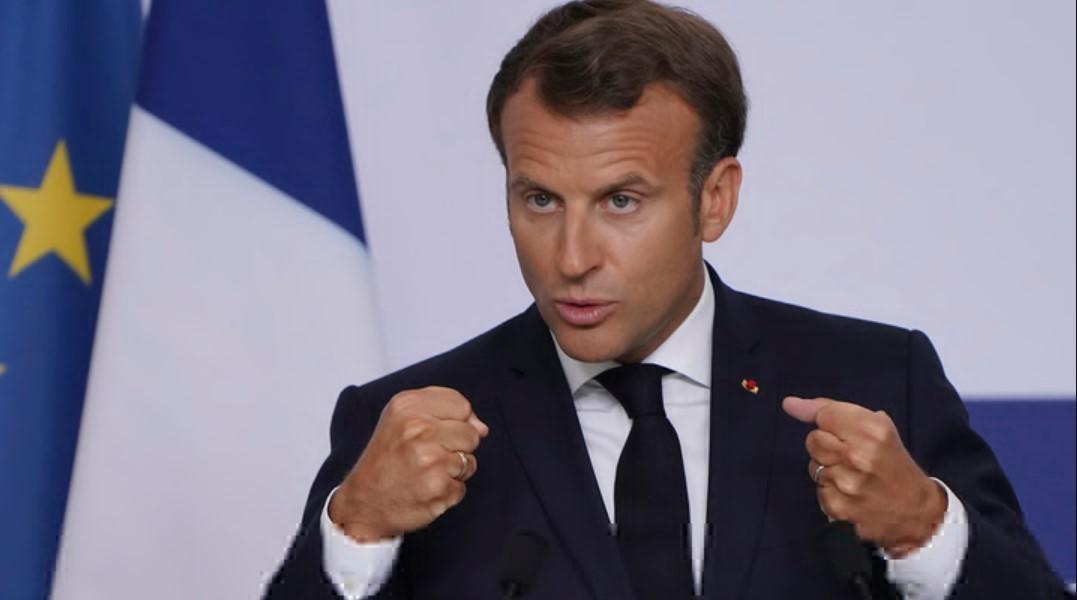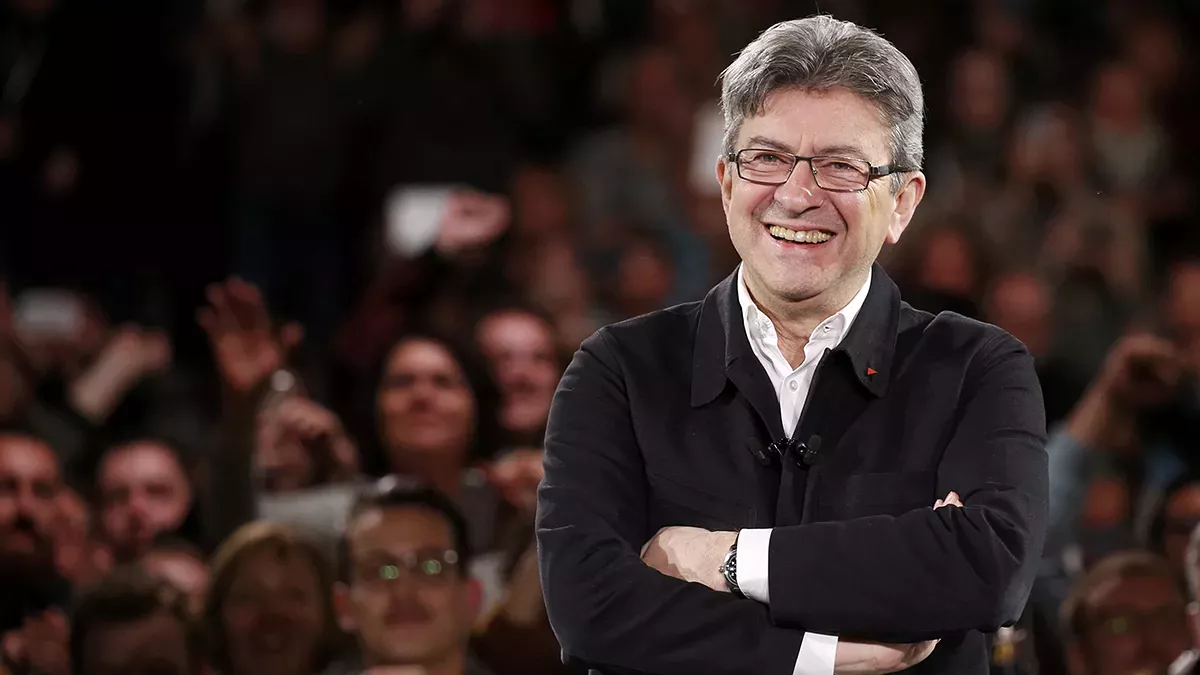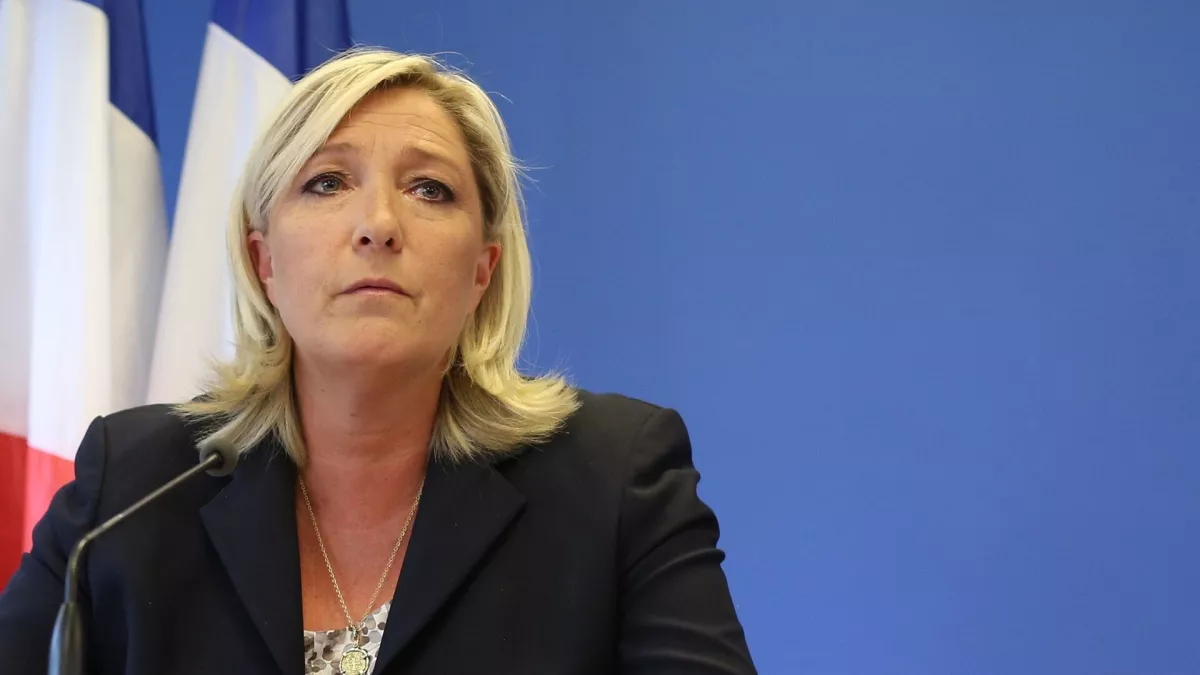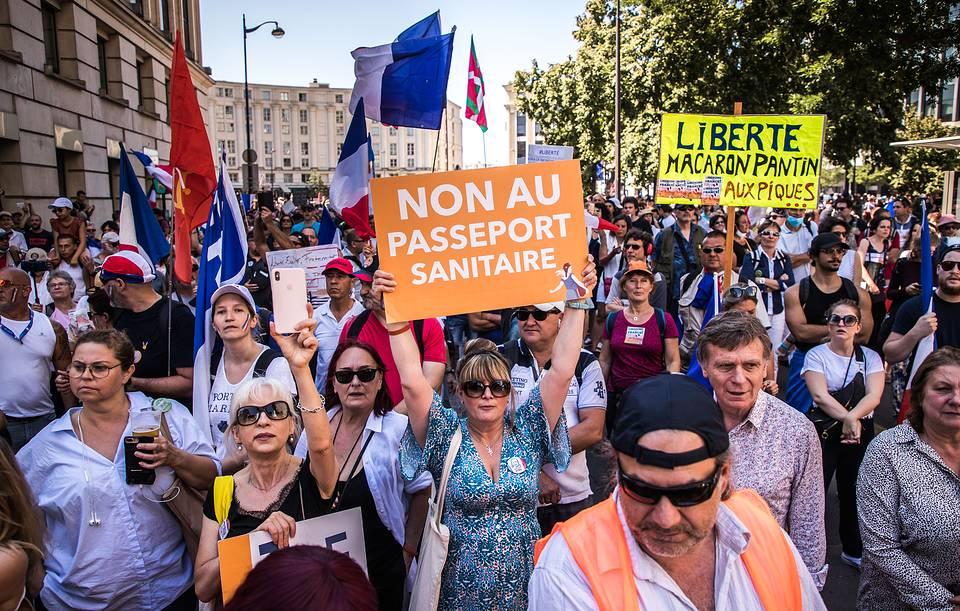Is Macron's resignation imminent? Political turmoil in France
Could Macron resign in the coming year? And who will be the next president of France?
In his New Year's address, Emmanuel Macron was forced to admit that his decision to dissolve the parliament had plunged the country into political instability. Today, leaders of the largest opposition forces are already demanding early presidential elections.
A New Year's confession
Politico named French President Macron the biggest loser of 2024. His eighth New Year’s speech was the shortest yet. However, even in this brief address in the Élysée Palace's winter garden, the president couldn't resist boasting about his accomplishments – claiming that they had hosted the Olympics and restored the Notre-Dame Cathedral. "Together this year, we proved that the impossible is not French," Macron declared with his characteristic pomp.

However, it is now clear that Emmanuel Macron has led the Fifth Republic into an unprecedented political crisis. It was his reckless decision to dissolve the National Assembly and call early elections that set the country on a path of political chaos. Reflecting on the past year, Macron was forced to admit: “I must recognize tonight that the dissolution has, for the moment, brought more division in the (National) Assembly than solutions for the French. I take my full part for that.”
But then, Macron tried to put a positive spin on the situation. He claimed that, despite its fragmentation, the parliament represented "the country in its diversity and, therefore, in its divisions." An admission that, frankly, leaves much to be desired. The problem is that this “diverse” parliament is dominated by both right-wing and left-wing anti-Macron forces. As a result, Michel Barnier’s minority government was ousted by the National Assembly just three months after its formation. The current government, led by François Bayrou, Macron’s fourth prime minister in a year, has been assembled through fragile compromises and lacks a majority in parliament. Macron’s loss of control over the situation reached such a point that Bayrou essentially appointed himself as head of government, threatening to withhold support from Macron’s centrist party in parliament. However, Bayrou’s cabinet also hangs by a thread and could collapse at any time. Despite this, Macron desperately calls for all political forces to unite in the new year for "collective recovery."
To add to the turmoil, the French people received another New Year’s gift from their president: the country enters 2025 without a budget. Many political leaders now see only one way to restore stability to the Fifth Republic – the resignation of Macron himself.
Macron, step down…
One of the first to respond in kind were the French left-wing parties. "It’s not enough to admit responsibility, one must draw the necessary political conclusions: step down," said Manuel Bompard, coordinator of the largest left-wing party, La France Insoumise (LFI). Echoing him, the leader of LFI’s parliamentary faction, Mathilde Panot, declared that she wants to remove this "arrogant and authoritarian president." The call for Macron’s resignation was also made by LFI member of parliament Éric Coquerel: "Macron acknowledges his guilt but learns nothing. In 2025, I hope the French people can return to the polls, so we can act again… He must go, I see no other solution."
Jean-Luc Mélenchon, leader of La France Insoumise, had previously stated that he and his party had already started preparing for new presidential elections.

The left-wing bloc Nouveau Front Populaire (New Popular Front), which garnered the most votes in the last elections, secured no seats in Barnier's government. In the new cabinet, this was "taken into account" by assigning the regional planning minister portfolio to François Rembsamen. However, his "left-wing" credentials are rather peculiar – he was a radical Trotskyist in his youth before joining the Socialist Party, and later leaving it. Today, Rembsamen and his small party, Fédération Progressiste (Federation of Progressives), play the role of a kind of "left-wing" pro-Macron faction.
However, there is no unity within the opposition left-wing camp. On January 5, former French president and socialist François Hollande stated that Macron should serve out his term until 2027. In effect, he promised support for Bayrou’s government, provided it addresses issues like pensions and taxes in accordance with the Socialist Party's demands. Hollande also stated that the Socialist Party must become fully autonomous from the radicals of La France Insoumise.
But calls for Macron's resignation also come from the far-right. In mid-December, Marine Le Pen, leader of the Rassemblement National (National Rally), declared: "I am preparing for early presidential elections, considering the fragility of Emmanuel Macron’s position and the few institutional levers left to him. His position is very fragile. There are many reasons that could push Emmanuel Macron to end his mandate." According to the leader of the French nationalists, Macron has lost control over the situation within the country and influence on the international stage. "For Emmanuel Macron, it’s over," says Marine Le Pen.

On December 31, Marine Le Pen made her New Year’s address, calling the outgoing 2024 a “grim year.” In her view, "political forces, whose sole aim is to maintain power, are leading us toward catastrophe." While she did not explicitly call for early presidential elections for the New Year, she hinted: "2025 will be a decisive year…"
According to a poll by the Institut Elabe, only 21% of respondents trust President Macron today. The majority of the French population supports early presidential elections in 2025. But is Macron's resignation truly possible?
The Fifth Republic in turbulent waters
Article 68 of the French Constitution outlines the impeachment procedure for the head of state. However, it is quite complex. Firstly, the president can only be removed from office in the event of a "breach of duties incompatible with the exercise of his mandate." Some deputies argue that the institutional crisis provoked by Macron falls squarely within this definition. However, to initiate the impeachment process, the votes of two-thirds of the deputies are required, which seems highly unlikely.
Therefore, in reality, Macron can only resign "voluntarily." However, in his New Year's speech, Macron already outlined his survival strategy for 2025. He now intends to position himself above the government, focusing more on international politics and the so-called "revival" of Europe as a whole. In other words, the French president will reign while the Bayrou cabinet governs. He also promised to hold referendums and citizen assemblies.
Yet, some observers believe that another vote of no confidence in the government could mark the political end for Macron himself. According to a December poll, around 64% of the French population are dissatisfied with Bayrou’s appointment as head of government. Additionally, 67% of respondents believe that a vote of no confidence in his government will be declared soon.

Many current politicians share this view, as the decision regarding the government ultimately rests with them. The primary reason for the resignation of the previous Barnier cabinet was the proposed 2025 budget, which called for a €40 billion cut in spending and a €20 billion increase in revenue through taxes on large businesses. As a result, this budget failed to gain approval from both the left and the right. "The same reasons will lead to the downfall of François Bayrou," said Thomas Dossus, a senator from the Écologistes party, which is part of the left-wing Nouveau Front Populaire (NFP) coalition.
As for the referendums, Macron seems to want to play at "direct democracy," using public referenda to shield his policies. However, President Macron has repeatedly promised referendums in the past but has failed to follow through. The Secretary of the French Communist Party, Fabien Roussel, reminded Macron how he ignored the proposal for a referendum on raising the pension age. The Communist leader has already pledged to offer fresh ideas for nationwide votes. Should Macron lose such a plebiscite, it could be a powerful signal for his resignation. For now, he has repeatedly stated that he has no intention of stepping down.
Another trigger that could lead to Macron’s resignation may be the worsening situation in the French economy, particularly in the financial markets. If the political and economic circles backing Macron acknowledge that his resignation is in their "shared interest," he may be forced to leave office.
As for the current ratings of French politicians who could potentially contend for the Élysée Palace, according to a poll conducted in December by the French Institute of Public Opinion (IFOP), the frontrunner for the 2027 presidential election is the far-right Marine Le Pen. In the first round, she receives 38% of the vote. Far-left leader Jean-Luc Mélenchon would secure 12%. However, there is a significant "but"—Marine Le Pen is facing criminal charges, and instead of running in the presidential race, she could soon face a court ruling.
Her potential rival in the presidential race, Jordan Bardella, has nearly the same rating—34%. But there is still the second round. In previous elections, an open or tacit alliance between centrists and leftists was capable of blocking the far-right populists' path to power. The previously Islamophobic and anti-immigrant agenda had, until recently, been met with rejection by a majority of the French population. However, now, amid the ongoing economic and political crisis, the situation is predicted to become extremely critical. Leading far-right candidates are almost neck and neck with centrist and leftist candidates, even in the event of their conditional unification.
Regardless of whether Emmanuel Macron remains in power until the end of his term or is forced to resign early, one thing is clear—France has already entered a period of unprecedented turbulence in the history of the Fifth Republic.








